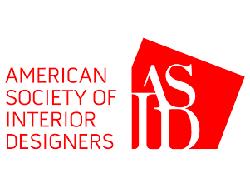ASID Releases Position Statement on Climate, Health & Equity
Washington, DC, October 1, 2021- With an eye on the interior design industry’s role in the health of the planet and its occupants, the National Board of Directors of the American Society of Interior Designers (ASID) has released its first-ever position statement on climate, health, and equity. This statement, acknowledges the impact of interior designers’ decision on these three areas and the power the profession has to improve them.
The statement is a starting point, and represents the National Board’s interest in addressing these issues in the coming years. As a first step, a task force has been created to carry out the work and ensure its progress. Its preliminary project is developing a holistic plan for education and resources that designers may reference in the cones of climate, health, equity.
In addition to its support from the board, the statement aligns with the current ASID Strategic Plan, adopted as a living document in Fall 2021 with the mission statement: “We are ASID, the association that empowers members to have a positive impact on people and the planet through collaboration, design thinking, education and advocacy.”
Position Statement on Climate, Health, and Equity
ASID believes that Design is an intrinsically human-centered profession and must have a positive impact on people, communities, and the environment. We recognize that the Interior Design profession has an obligation to minimize our environmental impact and move towards regenerative design. In order to advance design excellence within all professional disciplines of Interior Design and industry partners, ASID supports a focus on three tenets of design excellence: Climate, Health and Equity.
Climate
Climate change is the biggest single threat to health and economic prosperity on the planet. Interior Design has a role in reversing the negative impacts of climate change by focusing on eliminating emissions, designing for adaptability and resilience, and reducing resource consumption while supporting a circular economy.
Health
Both human and ecological health are essential components of a thriving society. Interior Design must create spaces that support holistic health by focusing on the physical, mental, and emotional well-being of occupants, responsible material specifications and protecting threatened ecosystems.
Equity
Social and environmental equity play a vital role in the development of cohesive, safe, and resilient communities. Interior Design should be an instrument for the integration of diverse populations by creating opportunities for community cohesion that address inclusion, accessibility, and fair trade.
The design profession must evolve to better address the pressing environmental, human health, and social challenges facing the world. By addressing the tenets above, ASID members have the power to transform the built environment. Interior Design is part of a larger ecosystem of roles, and collaboration between disciplines is imperative to drive change. ASID will support our member’s efforts through promotion of educational programs, tools, and advocacy for public policies, and endeavor to forge strategic alliances as part of a multi-disciplinary effort.
Related Topics:American Society of Interior Designers (ASID)
